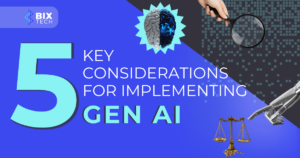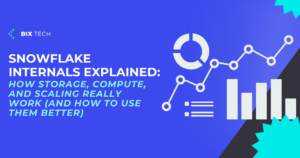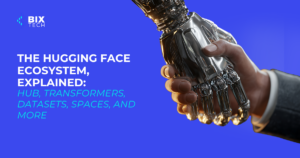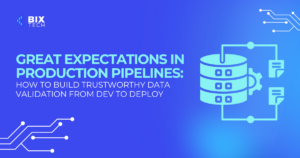In the second half of 2022, major economists already indicated: the arrival of next year would be accompanied by a global recession. According to the Center for Economic and Business Research (CEBR), this economic phenomenon would occur due to the high costs of loans intended to combat inflation. Such an action described would cause the contraction of several economies, as it just happened.
“The world economy is likely to face a recession next year as a result of interest rate hikes in response to higher inflation.”
Kay Daniel Neufeld, director, and head of CEBR 2022 forecasting.
Despite the scenario of the global economy has passed the gigantic mark of US$ 100 trillion for the first time last year, the annual table of the World Economic League already indicates the previously premeditated stagnation that accompanies the recession. This paralysis grows progressively as policymakers continue their fight against rising prices.
What should companies expect from the recession?
According to forecasts released in October 2022 by the International Monetary Fund (IMF), more than a third of the world economy is expected to contract. In addition, there is also a 25% chance that the global GDP will grow by less than 2% in 2023, an event that would characterize the global recession. However, even with this pessimistic scenario, the IMF predicts that by 2037 the world Gross Domestic Product (GDP) will have doubled as the developing economies catch up with the richest ones.
It is worth noting that the Center for Economic and Business Research takes its basic data from the IMF’s World Economic Outlook. Based on this information, CEBR data scientists use an in-house model to forecast growth, inflation, and exchange rates.

Photo credits by Karolina Grabowska.
CEBR's top 5 predictions for a recession:
- The Chinese economy is not expected to overtake that of the United States as the world’s largest economy until 2036.
- By 2032 India will become the third largest economy in the world, accumulating $10 trillion by 2035.
- The UK will remain the sixth largest economy in the world and France the seventh for the next 15 years. However, the British should no longer outperform their European counterparts due to the lack of growth-oriented policies that the country has.
- Emerging economies with natural resources will receive a substantial boost as fossil fuels play an important role in the shift to renewable energy.
- The global economy will be a long way from the $80,000 per capita GDP level where carbon emissions decouple from growth. This means that more policy interventions will be needed to reach the goal of limiting global warming to just 1.5 degrees above pre-industrial levels.
Ok, but how can artificial intelligence help your company in times of recession?
In recent years, Artificial Intelligence technologies have become increasingly important. Surveys by major international research firms, such as Gartner, already expected that by 2022, AI will generate $3.1 trillion in business value for organizations, helping them to increase efficiency and navigate digital disruption. This reality came true in advance, in December 2021.
In addition to having its commercial value increase from $1.2 billion in 2017 to $3.1 trillion in 2022, AI accounts for 75% of all software spending – and growing year over year. It is worth noting that these statistics are not directly applied to the global recession, but reflect the positive impact of artificial intelligence on business growth worldwide.
According to the United Nations Conference on Trade and Development (UNCTAD), the introduction of IA over the last decade is one of the main drivers of economic growth in emerging economies. As companies are investing heavily in this technology as it can help them to develop new solutions to gain a competitive edge.
Businesses alone cannot solve most childhood-related problems, but they will benefit enormously from employing smart technologies. Realizing this, companies must be able to implement AI technologies that increase their productivity while reducing costs and time. The best scenario would be a scenario where these technologies were employed by all companies across the world and made them more competitive than their competitors.

Photo credits by Tara Winstead.
"In the year ahead, organizations will be able to experience the impact of artificial intelligence as they learn more about how they can best leverage AI to increase their ROI."
Carter Smith, senior research analyst at Gartner.
It is worth noting that deep learning (AI) algorithm technologies have already been applied in different fields such as agriculture and agriculture is the only sector where this technology is used in a price maintenance context. Therefore, given its potential contribution to companies involved in international trade – for example, goods or services -, it should be the object of attention in international forums on trade and development.
3 ways artificial intelligence can help your business in times of recession
While a great tool for automating your business during a recession, investing in an AI solution will pay off in the long run. In the end, you and your employees will have more time for high-value tasks and less time for low-value tasks. This is where artificial intelligence really shines.
Below are three ways AI can help your business in these uncertain economic times.
Way 1) AI as a learning resource
The first way to implement artificial intelligence in your business is to use it as a learning resource. The reason for this is simple. Your team needs to learn new skills quickly, and the only way to do that is if you provide them with the right training materials.
We’ve seen this time and time again with our customers: in times of recession, people tend to avoid spending money on things they don’t need. People also like to do things on their own as much as possible – but there is a limit to what individuals can do without support from outside sources. As a result, your team’s skills can quickly become obsolete and/or obsolete. The solution? Use artificial intelligence to help you train.
Way 2) AI as a resource for everyone
In times of recession, you need to make sure everyone knows the status of the business at all times. You don’t want people wasting time on things that aren’t critical when they could be doing something else. As a result, everyone must know how your business is performing at all times.
To do that, you need feedback loops so people can know whether or not their decisions were right.
Way 3) AI as a resource for decision making
The third way to use artificial intelligence is to help your team make decisions. After all, your entire team can’t be available 24/7, so you need to find ways for them to make decisions even when they’re not around. In addition, you also want a way for everyone to understand the reasons behind these decisions.
You can do this with artificial intelligence by creating decision-making bots and mapping the main reasons why a certain decision was made.
Putting AI to work in your business
When it comes down to it, implementing AI doesn’t have to be difficult or cost a lot of money. It’s hard to argue that artificial intelligence wouldn’t help your team learn new skills quickly, help them make decisions, and understand why those decisions were made. What do you think? Does this sound like something you could use in your business?
If so, feel free to contact an expert on this subject by clicking here. Let us know what you’re looking for, and we’ll share with you more about how we can make it happen for your business.










